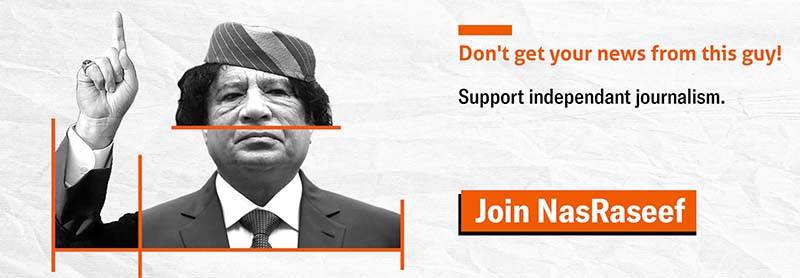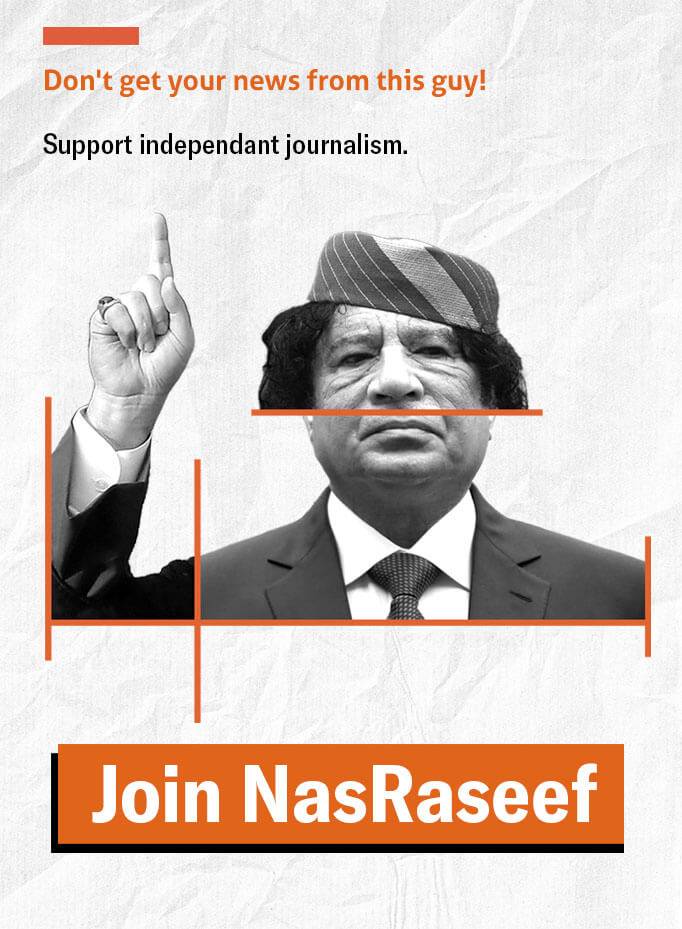Transit tolls
The drivers all agree that how they are treated differs from one area to another, but in most cases, transiting often requires paying certain sums. The most difficult checkpoint seems to be the one at Dmeir, which leads into Damascus, says Suleiman, a truck driver from Aleppo. There, the searches are very strict and passing through requires paying a toll of up to 100,000 Syrian pounds (roughly $250). In areas held by the Syrian rebels, things are sometimes not that different from regime areas: some rebels charge tolls for transit, while other factions may not, the drivers say. In territories controlled by the Islamic State group (Daesh), taxes are levied on cargoes paid by the owners of the goods, while zakat, the Muslim alms tax, is extracted annually from the drivers. And in Kurdish-held areas, the factions in control collect customs tariffs, calculated on a nominal basis.Off-roading to avoid trouble
The road from Ras al-Ain, now under the control of the Kurdish People’s Protection Units (YPG) to Raqqa province, under Daesh’s control, is roughly 130 km. In normal conditions, it would take around one hour and a half to travel. Today, however, the trip takes 4 to 5 hours, said Munir, a bus driver who operates out of Raqqa. “We have had to off-road because the main highway has been witnessing a lot of fighting,” he explained. “We stop at a few checkpoints before reaching Raqqa. The vehicle is searched and passengers are questioned: each passenger needs approval from the 'Islamic Police' to leave or enter Raqqa, so we cannot have any passenger who does not have this permission. Otherwise, we would be questioned and detained.” According to Munir, Daesh restricts the movement of civilians out of Raqqa because it wants to keep as many of them as human shields, in the event the province comes under bombardment or a ground offensive. In the Kurdish areas, he continued, as a result of repeated suicide bombings, no outsiders are allowed in except if guaranteed [by locals]. “Those without an ID proving they are from the province are stopped near the Iraqi refugee camp west of Ras al-Ain, until a local vouches for them.”Informants too
The goods hauled by the drivers are usually basic supplies for civilians, including food, fuel and medicine. The tough conditions in which people live have forced all factions to allow trucks to bring in supplies when possible, said Ziad, a fighter with the Kurdish security forces 'Asayish' who mans a checkpoint in the area. But Ziad admitted that truckers and bus drivers often double up as informants. “We often receive intelligence regarding rigged cars coming from Daesh-held areas from the drivers. But the drivers also sometimes give Daesh information on our positions.” Truck1
Truck1 Roadblocks
Daesh levies an annual tax on drivers passing through its territory, according to Khalil, a driver from Idlib in the north. “We have found ways to avoid paying, including sharing the same receipts among each other, which we produce when crossing to circumvent the annual alms tax.” Before the war, Khalil, whose family lives near the Syrian-Turkish border, worked on the Lebanese-Syrian route. After the war, his trips mainly take place between Aleppo, Raqqa, and Qamishli, areas controlled by rival factions respectively (the regime, the rebels, Daesh, and the Kurds). Khalil blamed sectarianism between Syrians for not going to Lebanon anymore. “I am from Idlib, a Sunni region. I am concerned about being discriminated against because most checkpoints in the direction of Lebanon are controlled by Alawite officers or Shia militias,” he said. By contrast, Kurdish drivers cannot cross into Daesh-held areas where they are likely to be executed. Khalil described some of the difficulties and risks faced by the drivers. “We are forced to change our attitudes to appease the factions in control. With Daesh, for example, any wrong word about religion could spell death. Daesh also sees us as infidels for traveling through and dealing with infidel areas.” “All factions detest the drivers, but they have to work with them to get supplies,” he added. This is not to mention the long waits many drivers have to endure at checkpoints, which can last for days and even weeks, according to Hassan, a driver from Homs. “It all depends on the mood of whoever is in control.”Daesh’s hypocrisy
According to Khalil, the driver from Idlib, Daesh prohibits many items it claims are religiously proscribed. However, he says this applies to civilians but not its own militants. “Oftentimes, Daesh militants confiscate cigarettes from the drivers and punish them, while many of them happen to be smokers in secret.” “One of the foreign leaders in Daesh in the Aleppo countryside would every night raid the places of drivers and confiscate cigarettes, but later on, we discovered that he would smoke them,” he said. Abu Mohammad, a driver from Deir ez-Zor province, made some comparisons between the factions. He said the areas controlled by Daesh are the worst. “Even the regime is more lenient than Daesh.” But the Kurdish-held areas are the best in terms of the treatment drivers are afforded, he said, attributing this to the presence of stable institutions and laws. “All it takes to cross is a receipt from customs.” Abu Mohammad meets with his family only once or twice a month, but says he has to brace the hardship to support them. He too spoke of the risks the drivers face. “A cousin who is a driver was detained by Daesh for carrying 70 liters of fuel. Daesh confiscated his truck and fined him 150,000 pounds ($450), causing him a heart attack that killed him.” Truck2
Truck2 Punishing the drivers
The drivers say Daesh hands out several kinds of punishments, depending on the “offense”. For example, the jihadist group imposes a fine of $30 for smoking a cigarette (must be paid in American dollars). And the punishment for carrying a box of cigarettes is a fine of 12 grams of gold. Daesh also dishes out corporal punishments. Said, a driver from Aleppo, said that several months ago, he had brought with him two bottles of whiskey. They were in a secret place in his truck, but when he stopped in Raqqa, Daesh was able to find them during an inspection. “I was jailed for three days and given 90 lashes. Then they tried me but released me, despite the fact that punishments related to alcohol can sometimes be the death penalty,” he said. Daesh also punishes those who shave their beards, according to Said, but exempts drivers because they have to travel through regime and Kurdish areas where long beards are suspicious. The names used in this article are not real. The drivers fear using their real names, which could put their lives at risk.Raseef22 is a not for profit entity. Our focus is on quality journalism. Every contribution to the NasRaseef membership goes directly towards journalism production. We stand independent, not accepting corporate sponsorships, sponsored content or political funding.
Support our mission to keep Raseef22 available to all readers by clicking here!




Join the Conversation
جيسيكا ملو فالنتاين -
11 hours agoجميل جدا أن تقدر كل المشاعر لأنها جميعا مهمة. شكرا على هذا المقال المشبع بالعواطف. احببت جدا خط...
Tayma Shrit -
2 days agoمدينتي التي فارقتها منذ أكثر من 10 سنين، مختلفة وغريبة جداً عمّا كانت سابقاً، للأسف.
Anonymous user -
2 days agoفوزي رياض الشاذلي: هل هناك موقع إلكتروني أو صحيفة أو مجلة في الدول العربية لا تتطرق فيها يوميا...
Anonymous user -
2 days agoاهم نتيجة للرد الايراني الذي أعلنه قبل ساعات قبل حدوثه ، والذي كان لاينوي فيه احداث أضرار...
Samah Al Jundi-Pfaff -
3 days agoأرسل لك بعضا من الألفة من مدينة ألمانية صغيرة... تابعي الكتابة ونشر الألفة
Samah Al Jundi-Pfaff -
3 days agoاللاذقية وأسرارها وقصصها .... هل من مزيد؟ بالانتظار